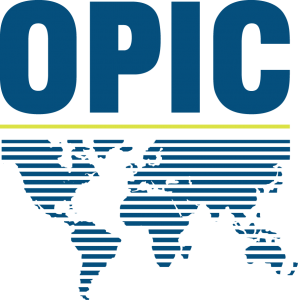Take the following case: In January, 2014, the Overseas Private Investment Corporation (OPIC), which is the U.S. Government’s development finance institution, received a detailed written complaint about a project it financed in Liberia. The complaint was submitted by two CSOs on behalf of aggrieved Liberian parties, and it alleged a variety of human and labor rights abuses. Allegations include contamination of drinking water, physical coercion and insecurity of workers, abusive labor practices, and disruption of livelihood of value chain suppliers.
In response, OPIC management requested that its Office of Accountability conduct a thorough review of the allegations and the actions taken by OPIC and its client, with a view of learning lessons for future projects. The review was completed in September, 2014, and generated several recommendations for strengthening feedback channels. The review, however, also identified several challenges facing them:
- The company had established project grievance mechanisms and channels for corporate-community communications but the effectiveness of these channels may have been compromised by concerns of reprisals, weak overall communications in a far flung enterprise, rapid company expansion, and management turnover.
- Affected stakeholders were not made aware of OPIC’s Office of Accountability until OPIC no longer had a financial relationship with the project.
- By the time that the Office of Accountability conducted its review, the company had exited Liberia, and the ability to vet allegations about past human rights abuses was largely limited to one-sided and coached testimony from aggrieved parties.
- Liberia’s post-conflict/weak governance environment compromised oversight from government authorities and created incentives to characterize past events in a manner to obtain financial gain.
The Liberia case illustrates both the opportunities and challenges associated with mobilizing different channels of stakeholder feedback in the service of protecting human rights. There is growing recognition among investors and project developers in emerging market countries about the value of obtaining feedback from affected stakeholders, including customers, workers, value chain suppliers, and local communities affected by project construction or operations. Although some natural reluctance remains about receiving adverse information, actively soliciting systematic stakeholder feedback offers a means for developers to manage risks related to corporate reputation, operating costs, and liability. Even more, such feedback can lead to financial benefits from constructive community engagement and partnerships, as well as from previously unidentified opportunities for maintaining and growing markets for goods and services.
For that subset of project developers that receive financing via an international financial institution (IFI), such as the World Bank Group’s International Finance Corporation, dedicated channels for receiving feedback are often established through IFI policies:
- IFI clients may be required to consult with affected communities early and often, especially if the intended project is expected to have significant social or environmental effects.
- IFI clients may be required to establish project Grievance Redress Mechanisms (GRMs), which are locally-based, project-specific formalized systems to accept, assess, resolve, and respond to feedback or complaints.
- IFI clients typically conduct stakeholder consultations to inform their Corporate Social Responsibility programs.
- IFI managements conduct due diligence and monitoring site visits, maintain communication channels such as hotlines, and consult with local civil society.
- Most IFIs have created accountability mechanisms, which are offices within the IFI that are independent of financing activities and have authority to assess, mediate, and review complaints and disputes.
There is a natural hierarchy/priority in mobilizing different mechanisms. All else equal, it is far preferable to receive and respond to feedback before concerns escalate into formal complaints or overt disputes. The first line of defense is thus bilateral interactions between IFI clients and affected stakeholders such as community consultations and grievance mechanisms. If these approaches prove insufficient, then feedback channels operated by IFI managements may be needed. As a last resort, the accountability mechanism may be mobilized. By that point, however, positions have often hardened and trust has broken down.
Increasing visibility and awareness of international principles of human rights is creating new opportunities and challenges for channels of citizen feedback. The roles and responsibilities that governments and businesses have with respect to human rights are becoming increasingly recognized internationally. The UN Guiding Principles on Business and Human Rights (so-called “Ruggie Principles”) include operational principles around three pillars –the State duty to protect, the corporate responsibility to respect, and access to remedy. Businesses are increasingly recognizing that there are financial risks associated with conflicts around human rights issues.
Broadly speaking, the ecosystem of channels for protecting and respecting human rights as related to business activity overlaps with citizen feedback mechanisms. This ecosystem includes indigenous approaches dispute resolution, the courts (both conventional and specialized mediation/arbitration courts) project and corporate grievance mechanisms, as well as processes conducted by public sector ombudsmen and human rights offices, IFI accountability mechanisms, and CSOs. Such channels are particularly important in post-conflict or otherwise weak governance environments, although such environments may also challenge their effectiveness for technical, logistical, or institutional reasons. While each of the three pillars requires effective channels of communication for their implementation, feedback mechanisms have so far tended to be used most for “access to remedy” purposes; that is, they become activated once an overt dispute has emerged.
The Liberia case reinforces the value of establishing feedback mechanisms in environments with risks to human rights, and ensuring that they are effective in providing timely, confidential, and actionable communications.
About the Author
Dr. Keith Kozloff served from January, 2011, through September, 2014, as Director of Accountability at the U.S. Overseas Private Investment Corporation. Previously, he was Senior Environmental Economist at the U.S. Treasury Department’s Office of International Affairs








